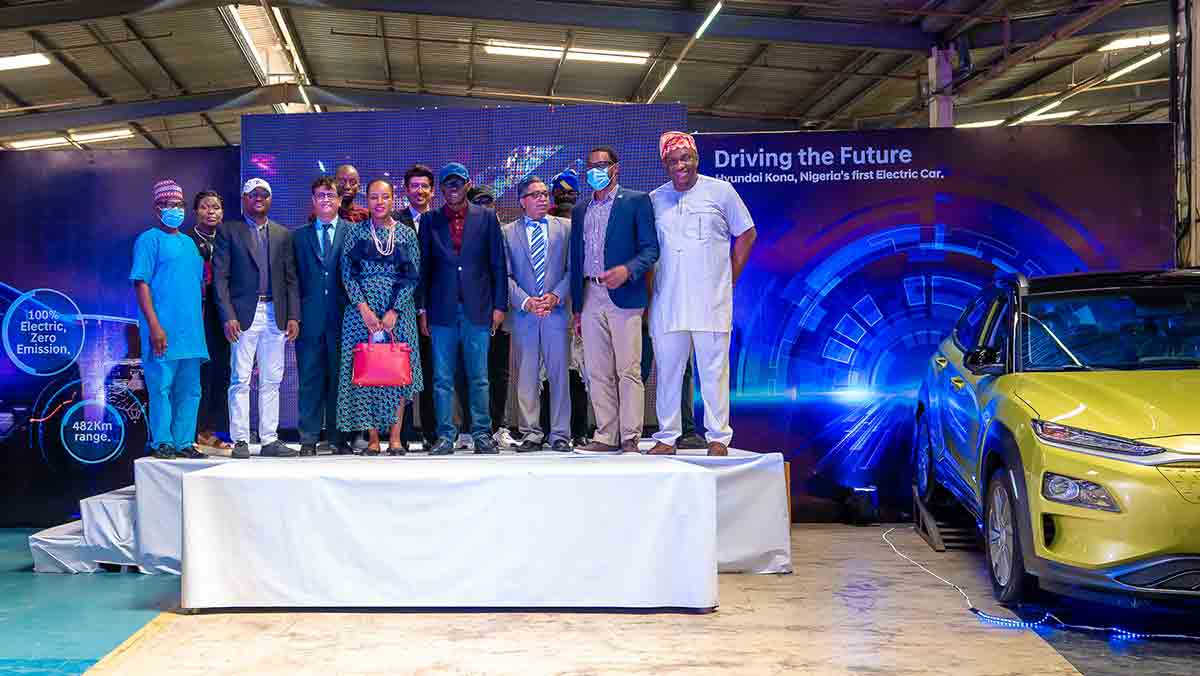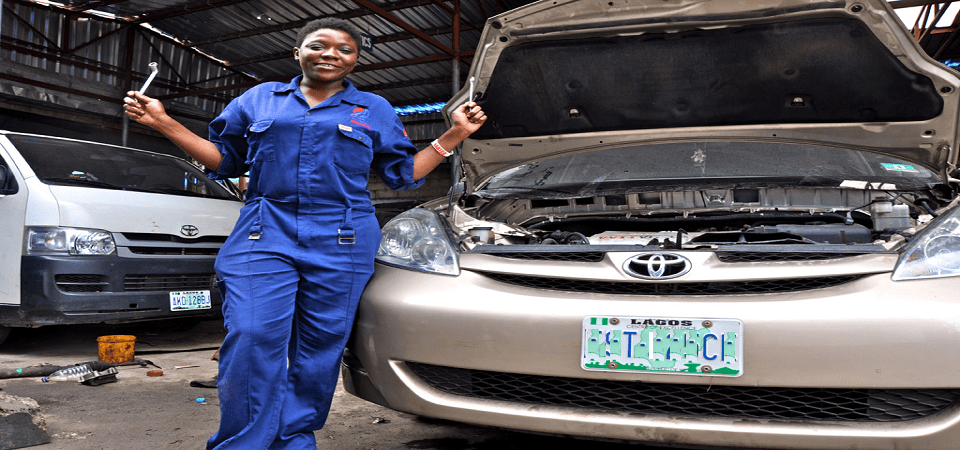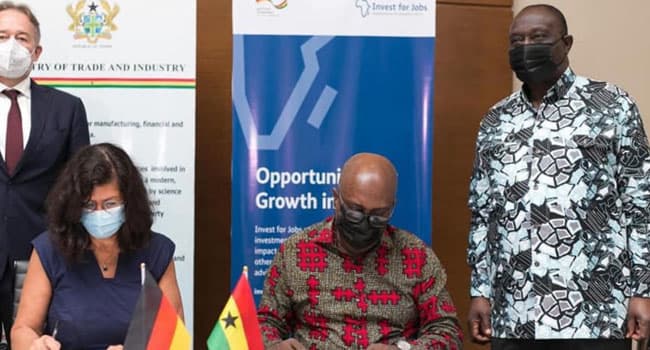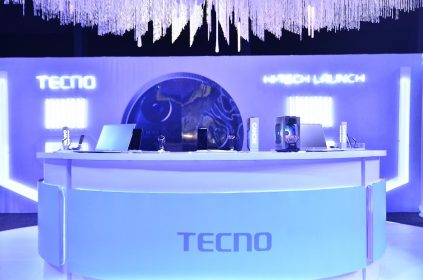Automobile giants, Hyundai and KIA, are reportedly planning to establish assembly plants in Africa’s fast-growing automotive market, Ghana.
The news first broke on Twitter when Ghana’s Minister of Trade and Industry, Alan John Kyerematen, tweeted about the ongoing development.
Pleased to announce that Hyundai & KIA are set to establish assembly plants in Ghana by the end of 2022 to join Toyota-Suzuki, Nissan, Kantanka, Volkswagen & Sinotruck. The Ghana Auto Development programme = 3,600 assembly & 6,600 manufacturing parts jobs in Ghana. #InvestforJobs pic.twitter.com/JMHAmlM5VI
— Alan John Kyerematen (@AlanKyerematen) April 22, 2021
According to the Minister, both Korean automotive manufacturers will be joining other existing automobile manufacturing companies, including Toyota-Suzuki, Nissan, Kantanka, Volkswagen, and Sinotruck, which have already established vehicle assembly plants in the country.
While the plants are scheduled to be operational sometime in 2022, the Minister claimed that the new opportunity would create an equivalent of 3,600 assemblies and 6,600 manufacturing parts jobs for Ghanaians.
The Minister further commented that the ministry of trade and Industry (MoTI) had signed an agreement with the German Federal Ministry for Economic Cooperation and Development (BMZ) to promote the automotive sector while supporting the development of industrial parks in the country.
In line with the agreement, a total amount of €540,000 has been invested to finance the project as it kicks off.
While the latest development is a commendable one, especially considering that Ghana is a neighbouring country, it portrays another missed opportunity for Nigeria.
Speaking of which, Ghana seems to have hijacked the seeming spotlight that has been enjoyed by Nigeria for many years now.
Twitter and the German government overlooked Nigeria. They chose the neighbouring country as their choice destination to set up their West African HQ and the new German-West African Centre for Global Health and Pandemic Prevention, respectively.
However, reports have it that KIA had previously established an assembly plant in Lagos State sometime in 2015; hence, launching in Ghana may not outrightly be a loss to Nigeria as many have opined.
Namely, United Vehicle Assembly Limited (UVAL), the Lagos KIA plant, has recorded an annual production capacity of 25,000 vehicles.
ALSO READ: Nigeria Overlooked Again As Amazon Plants New HQ In South Africa
On the other hand, Hyundai who also announced plans to set up a car plant in Nigeria in December 2019, is yet to achieve its goal despite having its proposal supported by President Muhammadu Buhari.
With no sign of readiness to follow up with its plan to set up an assembly plant in Nigeria, Hyundai seems more ready to fulfil a similar goal in Ghana.
What could be delaying Hyundai from establishing an assembly plant in Nigeria?
Firstly, the reason for Hyundai’s delay to fulfil its plan to set up an assembly plant in Nigeria is still unknown, albeit the company recently Inaugurated Nigeria’s First Electric Car – Hyundai Kona.
While the electric car was locally assembled, the Korean automaker did by utilizing Stallion Group’s VON assembly plant.

Stallion: Lagos State Governor, Babajide Sanwo-Olu Inaugurates Nigeria’s First Electric Car – Hyundai Kona at Stallion Group VON assembly plant
Considering the delay in its commitment to set up its own car assembly plant, speculated reasons range from unfavourable government policy to COVID-19 constraints and, more recently, the adjusted Nigeria Finance Bill for the year 2020.
There is a new clause in the Nigeria Finance Bill for the ongoing year to drive down import duties on foreign vehicles from 35% to 5%.
Although this is a commendable initiative by the government, it comes at a great loss for the local manufacturers and investors.
According to local manufacturers, the changes made to the cost of import duties would potentially limit the demand for locally produced vehicles, considering that more Nigerians would instead prefer to ship in their cars than patronize local manufacturers.
While speaking at the Nigerian Economic Summit Group (NESG) conference sometime last year, the CEO of GIG Group (parent of GIG Mobility & Logistics), Chidi Ajaere, raised concerns about the new policy, especially as to how it greatly affects investors.
“We have invested all that money. What will happen to us (the investors in that vehicle assembly plant) now with the policy somersault? Will the federal government come to our aid with incentives for the monies already sunk into the investment?” Chidi said with great concern.
In responding to his questions, Vice President of Nigeria, Yemi Osinbajo, who was also an attendant, said that the decision to slash the import duties on vehicles was made to reduce the cost of cars and, by extension, cut down on the cost of transportation in Nigeria.
To further explain the need to make such changes on the import duties, Osinbajo claimed that the removal of fuel subsidies had increased the cost of transportation across the country; hence, the reduction of import duty is to further reduce fare prices.
Moreso, the VP added that Nigeria’s annual vehicle demands currently stand at 720,000; however, the local production can only meet up with the demand for 14,000, less than 3% of the overall demand. Hence, the decision to reduce import duties.
Although Hyundai is a more recognised automobile brand, it also stands to be affected by the policy as other brands such as Toyota, Honda, and Lexus (three of which are the most imported cars in Nigeria) tend to drive more sales.
Interestingly, Ghana is doing just the opposite of what Nigeria is doing concerning importation duties. In its case, to foster her automotive industry, the government is offering tax incentives to bait foreign carmakers into the country.
ALSO READ: What You Should Know About YouTube’s Reading Challenge For African Authors
Apart from giving a five-year tax break for parts manufacturing and up to 10 years for automakers that set up local manufacturing plants, the Ghanaian government also lifted import duties on new and used cars from 5%-20% to 35%.
Not just that, the Ghanaian government has also placed a ban on the importation of cars that are older than ten years. These policies clearly show why more automakers are making a speedy move to benefit from the ongoing incentivisation.
Finally, on this note, it is too early to conclude that Hyundai or any other foreign automaker is not going to set up a plant in Nigeria.
However, looking at the huge opportunities provided by the Ghanaian government, Hyundai and its likes tend to focus on Ghana as a primary destination for now.
Other opportunity drives in Ghana automotive industry
Due to the removal of trade barriers within the African continent, owing to the implementation African Continental Free Trade Area (AfCFTA), Ghana seeks to steal an upper hand against regional rival Nigeria by becoming a gateway to the rest of West Africa market leader in new car sales.
Undoubtedly, the narrative fits the Ghanian government’s proposition. It currently appears that the country will sooner than later contribute the highest quota to automotive exportation, especially within the West African region.
The above statement is also evident in a revelation made by Toyota’s Africa division CEO, Richard Bielle.
According to him, the plan is for the continent to provide up to 30% of the corporation’s total annual revenue, currently at $60bn, within the next 20 years.
With Toyota’s most active assembly plants across West Africa located in Ghana and Ivory Coast, these countries benefit significantly from the above projection.
Despite Africa’s meagre contribution (less than 1%) to global annual car sales, retail and consumer spending is expected to strengthen in Ghana, owning to over two decades of stable democratic government.
“I think you’re going to see movement into Ghana pretty quickly,” managing director of emerging markets and Africa at Deloitte, Martyn Davies, once revealed.
“Ghana has a lot of work to do, and heavy lifting on the human resources front is required. But manufacturers and original equipment manufacturers have got the resources, and they can invest heavily. So this is not insurmountable,” Martyn added.
What Hyundai, Kia’s choice to establish assembly plants in Ghana means for Nigeria
Like other missed opportunities in the past two weeks, the latest development jeopardizes Nigeria’s chance to cut down its unemployed population by up to 10,000 persons.
We recently wrote about how Nigeria also got overlooked by Amazon who chooses to plant its new HQ in South Africa.
In the article, we buttressed how the job opportunity for over 25,000 people would have helped cushion the current Nigeria unemployment rate, which just rose to about 33%.

A lady mechanic
Also, this development further puts Nigeria behind Ghana who currently holds the top position for Foreign Direct Investment (FDI) in the automotive sector.
ALSO READ: INTERVIEW: Africa Is A Gold Mine For Ride-Hailing Business – CEO, TOUR Drive NG
On a final note, the latest development further sheds more light on other limitations that could further prevent more FDI even in the future.
More Nigerians have taken to social media to highlight why foreign investors might keep snubbing Nigeria as a destination for investment.
Some notable reasons range from rising insecurity, gapping infrastructural deficit, and stifling government regulations which have worsened to become overbearing even for indigenous investors.
In the meantime, we can hope that the Nigerian government takes urgent actions to reposition the country as a perfect destination for FDI, especially by implementing less aversive policies.



















 and then
and then